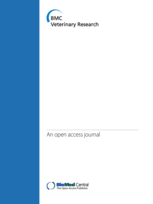
Identification of neglected cestodeTaenia multicepsmicroRNAs by illumina sequencing and bioinformatic analysis
Wu X, Fu Y, Yang D, Xie Y, Zhang R, Zheng W, Nie H, Yan N, Wang N, Wang J, Gu X, Wang S, Peng X, Yang G.
Abstract
BACKGROUND:Worldwide, but especially in developing countries, coenurosis of sheep and other livestock is caused byTaeniamulticepslarvae, and zoonotic infections occur in humans. Infections frequently lead to host death, resulting in huge socioeconomic losses.MicroRNAs(miRNAs) have important roles in the post-transcriptional regulation of a large number of animal genes by imperfectly binding target mRNAs. To date, there have been no reports of miRNAs inT.multiceps.
RESULTS:In this study, we obtained 12.8 million high quality raw reads from adultT.multicepssmall RNA library usingIlluminasequencingtechnology. A total of 796 conserved miRNA families (containing 1,006 miRNAs) from 170,888 unique miRNAs were characterized using miRBase (Release 17.0). Here, we selected three conserved miRNA/miRNA* (antisense strand) duplexes at random and amplified their corresponding precursors using a PCR-based method. Furthermore, 20 candidate novel miRNA precursors were verified by genomic PCR. Among these, six correspondingT.multicepsmiRNAs are considered specific forTaeniidaebecause no homologs were found in other species annotated in miRBase. In addition, 181,077 target sites within T.multicepstranscriptome were predicted for 20 candidate newly miRNAs.
CONCLUSIONS:Our large-scale investigation of miRNAs in adultT.multicepsprovides a substantial platform for improving our understanding of the molecular regulation ofT.multicepsand other cestodes development.
Copyright© 2013 Wu et al.; licensee BioMed Central Ltd.
BMC Vet Res.2013 Aug 13;9:162. doi: 10.1186/1746-6148-9-162.
Read full text:http://www.ncbi.nlm.nih.gov/pmc/articles/PMC3849562/